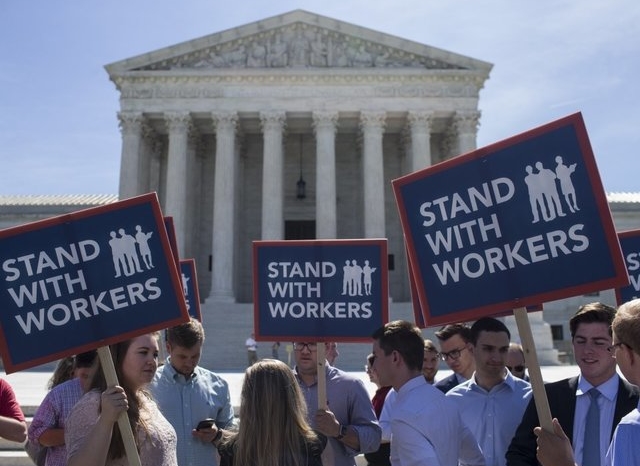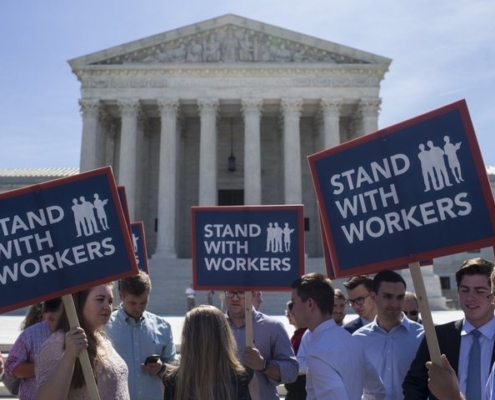Study: After Janus, Public Employees Should Only Pay Union Dues, Fees After Knowing, Intelligent Waiver
Public Employers Should Immediately Stop Collecting Agency Fees from Non-Union Members Unless Employees Effectuate Valid Waiver of First Amendment Rights
BOSTON – In the wake of the U.S. Supreme Court’s 2018 Janus decision, public employers should inform all employees of their right not to pay union dues or agency fees, and such dues and fees should be paid only after a knowing and intelligent waiver of their First Amendment rights, according to a new study published by Pioneer Institute.
In Janus v. American Federation of State, County and Municipal Employees (AFSCME), the Court ruled that an Illinois public employee who chose not to join his union could not be required to pay an “agency fee” that covers collective bargaining costs but does not subsidize union political activities.
The Court overturned the 1977 decision in Abood v. Detroit Board of Education, ruling that public employees have a First Amendment right to not pay agency fees that subsidize union speech without the employee’s consent. In a 5-4 decision, the justices found that the distinction between collective bargaining and political speech was artificial because unions express their views on a number of matters of public concern during negotiations.
“Agency fees violate employees’ First Amendment rights by compelling them to subsidize speech with which they may disagree on matters of substantial public concern,” said Kevin Martin, author of “After Janus, Public Employers Must Obtain Informed Consent Before Collecting Union Dues or Agency Fees.” “Public employers should immediately stop collecting them from non-union members unless those employees effectuate a valid waiver of their First Amendment rights.”
Martin finds that in most cases a written waiver is sufficient for employees to have union dues or agency fees deducted from their paychecks. The employee must be made aware of his or her right not to pay, and must not feel coerced or pressured to sign the waiver.
About the Author
Kevin P. Martin is co-chair of the Appellate Litigation group at Goodwin Procter LLP. Mr. Martin has argued and briefed numerous cases in federal and state appellate courts around the country, and also has extensive experience in both trial matters and internal and government investigations. Prior to joining Goodwin, Mr. Martin clerked for Justice Antonin Scalia on the United States Supreme Court and Judge Laurence Silberman on the U.S. Court of Appeals for the DC Circuit. He served as a special assistant district attorney for Middlesex County (MA) from 2004–2005, and has been named a “Lawyer of the Year” by Massachusetts Lawyers Weekly for his work before the Massachusetts Supreme Judicial Court. He is a graduate of Georgetown University’s School of Foreign Service, and Columbia Law School.
About Pioneer
Pioneer Institute is an independent, non-partisan, privately funded research organization that seeks to change the intellectual climate in the Commonwealth by supporting scholarship that challenges the “conventional wisdom” on Massachusetts public policy issues.
PioneerLegal, the public-interest law initiative of Pioneer, utilizes a legal-based approach to change policies in Pioneer’s core policy areas.
Get Our Worker Freedom Updates!
Support our work to promote worker freedom! Make a tax-deductible gift today.
Related Posts:






